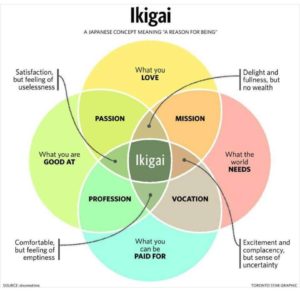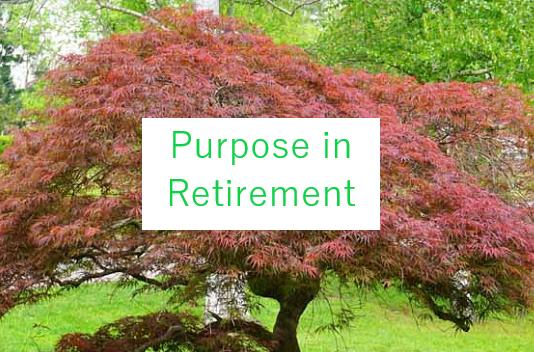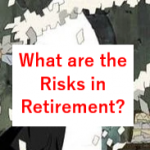Purpose in Retirement
While I focus almost exclusively on the financial aspects of retirement, we all know there is much more to retirement than money! In fact, once money is out of the way, it is an insignificant part of retirement.
There is a stark dichotomy present: either you have oversaved (which doesn’t mean you don’t worry or think about finances anymore), or you haven’t. If you haven’t oversaved, you might be constrained in your resources, or just living on social security.
My focus is not on those who have minimal resources for retirement, but on those who are constrained (or at least feel they are—many folks have plenty but don’t realize it) and those who have oversaved.
But let’s just assume the finances are out of the way, and you are able to think about other aspect of retirement. Like what are you retiring to? Like, what is the purpose of retirement?
Purpose of Retirement, or Purpose in Retirement
The purpose of retirement is slightly different than purpose in retirement. Remember, retirement is a new concept largely driven by expanding lifetimes and ability to concentrate resources through non-farm work. It used to be you worked until you no longer could, then your family took care of you. Now we live longer than heretofore imaginable, and we set aside resources to live in retirement for decades. Think about this: you live better in retirement now than the ruling class of centuries prior. Would you want to live prior to vaccines and antibiotics, anesthesia, when the average age of death is 43?
Retirement is like being part of the ruling class, or the leisure class if you will. Others are still working around us, but we have concentrated our resources and can focus on other things. Thus, we have purpose in retirement. Just because you quit working for a paycheck doesn’t mean you are not allowed to have purpose. The purpose could be your community, church or grandchildren. Those are all great. But let’s not stop there. True work doesn’t stop, unless you want entropy and atrophy to enter.
Finding Your Purpose Before You Retire
I want to look again more closely at this Japanese concept “A Reason for Being” because it ties together purpose in retirement.

Above, you can see Ikigai in the center. This flows from What you Love, What the World Needs, What you are Good At, and What you can be Paid For. Obviously, we don’t need the last part of this in retirement! So, Passion and Mission become more important than profession and vocation.
Let’s dive into the next internal layer, where three circles interact. On the bottom of Ikigai: when you don’t worry about being paid, what does “Comfortable, but Feeling of Emptiness” become? Yes- that is profound, because if all you focus on is what you can be paid for (and then you lose that)—what do you have left? Doing what you Love is on the other side of what you can be paid for… and it provides the antidote to feeling empty. The comfortable part… well, that is done and paid for from past labor. This overlap triangle actually become extinct in retirement.
And on the top of Ikigai is passion and mission collide.
Passion and Mission in Retirement lead to Delight
Passion and Mission lead to delight. Delight is fine and all, but it is not a way to live all the time. Too much of a good thing… but without the bottom circle, we are retired after all, there is wealth. This argues strongly that during retirement you cannot only do what you love, you must also do what you are good at and what the world needs.
Profession leads to satisfaction. Uselessness is minimized because you don’t need the paycheck but still need to DO WHAT YOU ARE GOOD AT in retirement. Vocation leads to excitement. The sense of uncertainty is gone, but you must DO WHAT THE WORLD NEEDS in retirement.
In summary, focus on excitement, satisfaction and delight. Minimize uselessness, complacency, and emptiness.
That’s a nice theory. What might it look like in the real world?
Purpose in Retirement
There is a saying: “only you can do you.” Only you remember what you enjoyed and dreamed about as a child. Retirement is a time to visit past visions of fulfillment, to make the old new again. There is power in the written word; you must write down lists and lists of what might bring you delight. And then you must take action.
Some common-sense suggestions:
- Find books you love.
- Or podcasts you love.
- Find exercise you can do 3-5 times a week, and different activities to try monthly.
- Get a new phone.
- Push yourself with technology. Don’t let it be frustrating. Just keep trying.
- Try Mindfulness.
- Consider Drugs. Change your state. Get out of ruts.
- What about a Life Coach?
- Keep your Pets.
- Mentoring. For you but especially from you.
- Learn about finances.
- Learn about taxes. Get your EA and start filling your neighbor’s.
- Never watch commercials. If you must watch TV, DVR it and fast forward through them.
- Stream a good series of shows.
- Watch a Ted talk every day for a week and take action on it.
- Drink coffee and alcohol. Moderation please. Eat well.
What did you do in your youth? Make a list of everything you did and enjoyed as a child and try it again. Don’t take up skiing, however. Keep making lists. Keep trying. Forget about the ‘ata boys’ you used to get at work. Praise is few and far between anyway.
In summary, you be you. Don’t let entropy and atrophy take over. Want SOMEthing. WANT something. Remember what you love, but don’t forget what you are good at and what the world needs.


This is excellent- another financial advisor likes to say- You should retire to something, not from something. I appreciate your holistic approach to this topic.
Maybe you should be a psychiatrist! LOL or priest!